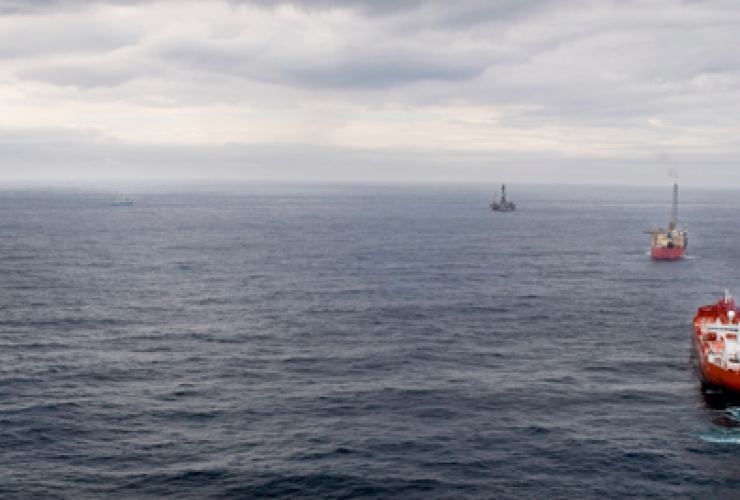New greenhouse gas legislation in Newfoundland and Labrador stops short of B.C.’s carbon tax but is aimed at cutting onshore industrial emissions with flexible carbon pricing.
Environment Minister Perry Trimper said it strikes a balance to take at least some action while not blunting the competitive edge of vital manufacturers.
Even with the new measures — which don’t apply to offshore oil sites jointly regulated with Ottawa — the province will still miss its 2020 reduction targets. The offshore oil sector produces about 16 per cent of emissions compared to 19 per cent from large industry onshore.
Transportation accounts for the biggest share at 34 per cent.
"This is the start," said Trimper as he announced the Management of Greenhouse Gas Act. "We’re not done, but I can assure you it hasn’t been free sailing to get to this point.
"We’ve had to have the answers, and we’ve had to have the co−operation of industry — which I feel we do."
The province had aimed to reach 10 per cent below 1990 levels by 2020 but the new act won’t be enough to reach those goals, Trimper conceded.
The governing Liberals are also crafting a new emissions reduction strategy, but for now are rejecting a more rigid carbon tax.
Trimper said a less costly choice for major industrial players is regulation with flexible compliance. It will allow companies to contribute to a technology fund, invest in projects in other sectors or bank performance credits if they exceed targets.
It will take at least two years to set those benchmarks as the government tracks emissions. Large industry contributes about one−third of the province’s gross domestic product.
Any onshore company that releases more than 25,000 tonnes a year will be required to cut those amounts once limits are set.
"We feel we’re striking the right balance," Trimper said, adding a carbon tax may be introduced in future.
A carbon tax involves "an attitude adjustment" but doesn’t necessarily reduce emissions, he added. Polluters pay a fee but may not actually cut what goes into the air, mostly from burning fuels.
"This needs to be done with industry, not to industry," Trimper said.
Provincial finances since oil prices crashed are under the dual pressures of a slowing economy and a massive deficit of almost $2 billion this year despite tax hikes.
Offshore sites are jointly managed with Ottawa under the Atlantic Accord. Talks have started with the federal government to cut pollution from that sector, Trimper said.
Keith Stewart, head of Greenpeace Canada’s climate and energy campaign, said Newfoundland and Labrador’s approach mimics what was done in Alberta before Premier Rachel Notley announced last fall a new climate strategy to take effect in January.
It includes a cap on oilsands emissions and a carbon tax. Large manufacturers and oilsands producers will pay $30 a tonne for emissions but will be eligible for rebates to help them stay competitive in North America.
Quebec and Ontario have emissions trading systems which Trimper said would be more complicated and take even longer than the approach announced Tuesday.
Stewart said a carbon tax is easier to administer and more likely to ultimately reduce energy costs for consumers.
"It’s great to see Newfoundland coming forward with plans on how they’re going to reduce emissions," he said in an interview.
"The thing is, as the government member admitted today, the numbers don’t add up. They’re not actually going to achieve their own reduction targets with these measures. They’re going to have to do more."
-The Canadian Press



Comments